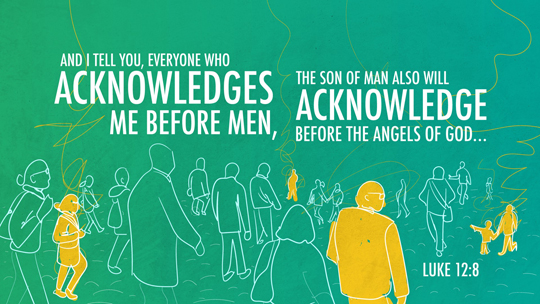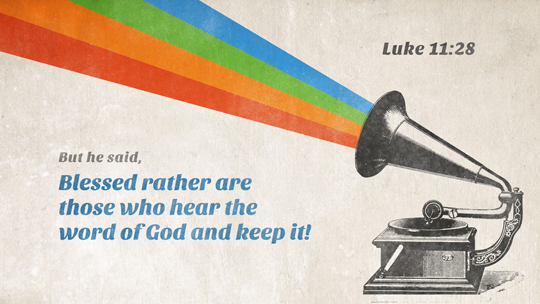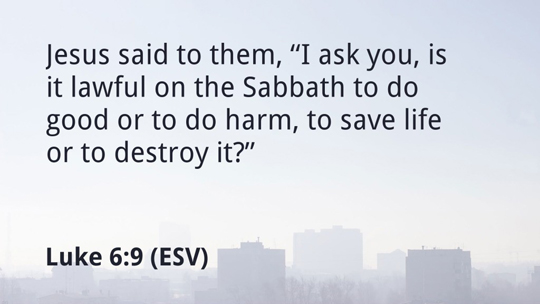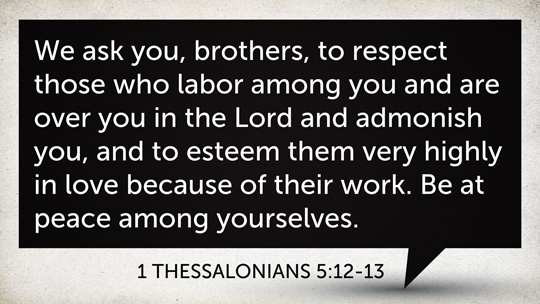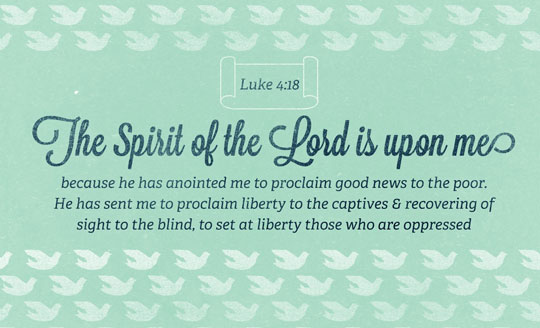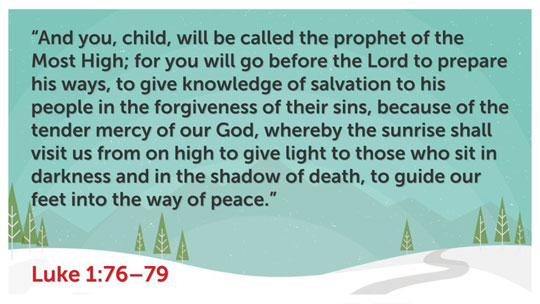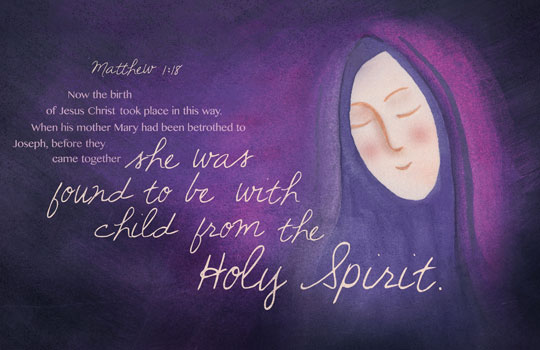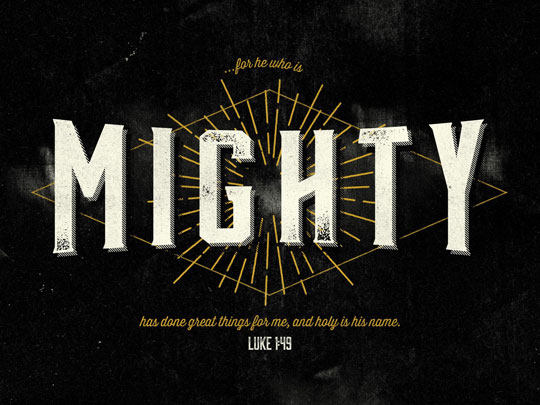
This sermon was preached on January 21, 2018 by Brian Watson.
MP3 recording of the sermon.
PDF of the written sermon, prepared in advance (see also below)
You may not know this, but there’s a football team that plays just a few towns away, in Foxboro. They’re called the New England Patriots, and they’re pretty good. In fact, this afternoon, they’re playing the AFC Championship game. This is the seventh season in a row that they’re playing in that game and twelfth time in seventeen years. During that stretch of time, when Tom Brady has been the quarterback and Bill Belichick the coach, the team has gone to seven Super Bowls and won five of them. They may go again to the Super Bowl this year. This is an unprecedented run of success. Only the San Francisco 49ers have had a similar seventeen-year run, and it’s not likely that another NFL team will have a similar run in the future.
In short, it’s good to be a New England Patriots fan. The team has won five Super Bowls on behalf of New England. We can share in those victories. They are our champions.
It’s good to be a Pats fan. But it’s quite another thing to play for the Pats in the future. Imagine the quarterback who starts for the Patriots after Tom Brady retires. According to Brady’s plan, that will be about five years from now. But at some point in time, he’ll have to step down as the starting quarterback. Imagine the man who will follow in his footsteps. I won’t feel bad for him. After all, he’ll make millions of dollars and he’ll be famous. But the fact is he’ll never be as good or as successful as Tom Brady. For him, Brady won’t be a champion. No, he’ll be an example, someone to emulate. But the sad thing is that man will always fall short. Brady will cast a long shadow on whoever follows him.
If the Patriots are your champions, they’ve won titles for you. No one can take those Super Bowl victories away from New England. In fact, every time I fly, which isn’t that often, in the terminal I usually use (Terminal C), right above the long, snaking line to go through security, the championship banners of all the Boston teams hang on the wall. If you look to the left, you see the early World Series victories of the Red Sox. As you start to look to the right, you see a lot of green, for all the Celtics championships. But as you continue to look to the right, you see more Red Sox banners, and then the five Patriot banners. This is a reminder of the what Boston teams have done for their fans.
But if you’re a player for any of those teams and haven’t yet won a championship, those banners don’t mean much. Those aren’t your victories. The player who follows Tom Brady can’t claim Brady’s five Super Bowl rings. He’ll have to earn his own. And it’s highly unlikely that he’ll ever get that many.
Now, why am I talking about sports? Because they illustrate an important concept related to Jesus. It’s one thing for Jesus to be your champion, and it’s another thing for him to be your example. A lot of people look at Jesus only as an example. Many people see Jesus as a great man, a wise teacher, but something less than God. Thomas Jefferson held this view. Many people who call themselves Christians but have unorthodox beliefs hold this view. Muslims believe Jesus is a prophet, but not the Son of God. New Age spiritualists think of Jesus as an enlightened teacher, but not the God-man who died for the sins of the world.
But Christianity says that while Jesus is an example, is not just or merely an example. There are certainly ways that we can emulate Jesus. But there are things that only he could do. Only he could live a perfectly righteous life. Only he could die for the sins of a multitude of people.
Almost a hundred years ago, a theologian named John Gresham Machen made a distinction between biblical, historical Christian and so-called “liberalism.” I often don’t use words like “conservative” and “liberal” because they instantly bring to mind all kinds of political ideas, some of which aren’t helpful. But when Machen talked about “liberalism,” he meant a drifting away from orthodox Christianity, a movement away from the Bible. And he said that Christianity and liberalism were two different religions. For the so-called liberal, “Jesus for him is an example of faith, not the object of faith. The modern liberal tries to have faith in God like the faith which he supposes Jesus had in God; but he does not have faith in Jesus.” But that was not the Christianity of the apostles, including Paul. “Jesus was not for Paul merely an example for faith; He was primarily the object of faith. . . . Not the example of Jesus, but the redeeming work of Jesus, was the primary thing for Paul.”
The apostles knew that Jesus was their champion. If we were to go back to our sports analogy, he won the “big game” for them. Yet so many people today think they can win the game on their own, and that their job is to follow the example of Jesus. The irony is that if you try to win on your own, even if you follow Jesus’ example to the best of your ability, you’ll never win. But if you admit you can’t win, and you trust Jesus’ victory on your behalf, you’ll win the trophy, and that prize will never be taken from you.
We get a sense of Jesus’ unique role in history in today’s passage, Luke 3:21–38. This passage consists of Jesus’ baptism and a genealogy that connects Jesus to the first man, Adam. This passage teaches us that Jesus is God’s unique, beloved Son, the one who comes to repair that damage that Adam, the first “son of God,” caused.
Let’s begin by reading the first two verses, Luke 3:21–22:
21 Now when all the people were baptized, and when Jesus also had been baptized and was praying, the heavens were opened, 22 and the Holy Spirit descended on him in bodily form, like a dove; and a voice came from heaven, “You are my beloved Son; with you I am well pleased.”
Last week, we saw that Jesus’ relative, John, was baptizing people as a way of preparing them for the coming of the Messiah. He was “proclaiming a baptism of repentance for the forgiveness of sins” (Luke 3:3). He was showing the people of Israel that they were rebels against God, they were unclean from their sin, and they needed to be washed. John’s job was to point the way to the one who came after him, the one mightier than him, the one who would baptize with the Holy Spirit and with fire (Luke 3:16).
Now, Jesus is baptized. Luke doesn’t say that it was John the Baptist who performed the baptism, but Matthew tells us that. Matthew also gives us a little more information about Jesus’ baptism, so I’ll go ahead and read Matthew 3:13–17:
13 Then Jesus came from Galilee to the Jordan to John, to be baptized by him. 14 John would have prevented him, saying, “I need to be baptized by you, and do you come to me?” 15 But Jesus answered him, “Let it be so now, for thus it is fitting for us to fulfill all righteousness.” Then he consented. 16 And when Jesus was baptized, immediately he went up from the water, and behold, the heavens were opened to him, and he saw the Spirit of God descending like a dove and coming to rest on him; 17 and behold, a voice from heaven said, “This is my beloved Son, with whom I am well pleased.”
Now, if you’re paying attention, and if you know anything about Jesus, you may wonder why Jesus would be baptized. In fact, that’s what John wondered. John tried to stop Jesus, but Jesus says he needed to be baptized.
The reason that Jesus gives is that “it is fitting for us to fulfill all righteousness” (Matt. 3:15). Jesus has come to save his people from their sin (Matt. 1:21). As we see in this passage, he is the Son of God. Yet though Jesus has always existed as the Son of God, over two thousand years ago, he also became a human being. He came to live a perfect human life. Earlier, I quoted J. Gresham Machen from his book, Christianity and Liberalism. In that same book, he writes, “Jesus was the most religious man who ever lived; He did nothing and said nothing and thought nothing without the thought of God.” We cannot say the same thing about ourselves. We do not do everything in life with a proper reverence for God. We don’t put God at the center of our lives, where he deserves to be. Though Jesus lived the perfect life, he came to identify with sinful human beings.
So, here’s the point: Jesus wasn’t baptized for his sins. He didn’t have any sins to be cleansed of. But he was baptized for our sins. All of us have broken God’s laws. Israel broke the laws God gave to them. All of us have broken God’s moral law. That is why Jesus came: to be the one who obeys God’s law in our place and to be the one who pays the penalty for our law-breaking. He was baptized in order to identify with sinful human beings.
He was probably also baptized in order to affirm John’s ministry. In other words, by being baptized by John, he was setting his seal on what John was doing. He was saying, “I affirm this message.”
And during his baptism, God the Father set his seal on his Son. Jesus’ baptism was the occasion when he was anointed by the Holy Spirit, and when God the Father said, for all to hear, “You are my beloved Son; with you I am well pleased.” God didn’t say these words to John the Baptist. God didn’t say these words to the other people John baptized. God the Father only said these words to Jesus, because Jesus alone is God’s one-of-kind, unique Son.
Before I explain what it means for Jesus to be the Son of God, I want to pick up on three images that are found in these two verses in Luke (3:21–22). First, the heavens are opened. Second, the Holy Spirit descends on Jesus right after he is baptized. Third, the Holy Spirit “descended on him in bodily form, like a dove.”
The idea that heavens are opened shows that Jesus is the connection between God and humans, between heaven and earth. The heavens weren’t opened for anyone else. The prophet Isaiah said to God, hundreds of years earlier, “Oh that you would rend the heavens and come down” (Isa. 64:1). God has done that. God has torn open the heavens and come down in the person of Jesus.
The Holy Spirit is significant. Here, in this passage, we have all three Persons of God. The Father’s voice is heard, telling his Son that he is pleased with him. The Son of God is on earth. And the Holy Spirit anoints Jesus. The fact that the Holy Spirit comes on Jesus, along with the Father’s voice, shows that God has set his seal on Jesus. The Father has set his seal on his Son. The man Jesus is empowered by the Holy Spirit to perform the Father’s mission.
The fact that God the Father, Jesus—the Son of God who is also called the Word of God (John 1:1)—and the Holy Spirit are present at a body of water reminds me of the beginning of the Bible. The Bible begins with these words: “In the beginning, God created the heavens and the earth. The earth was without form and void, and darkness was over the face of the deep. And the Spirit of God was hovering over the face of the waters” (Gen. 1:1–2). When God the Father created the world, he ordered and arranged it by his word, as the following verses show. And the Holy Spirit hovered over the face of the waters before creation took form. When Jesus’ mother, Mary, became pregnant, she was a virgin, and the Holy Spirit came upon her to produce a special child, Jesus. As I said last month, when that happened, it was a new start. It reminds us of Genesis and this is no accident, because in Jesus God is bringing about a new creation. The first creation was created by a miracle. But it was spoiled by sin. Jesus, too, is created by a miracle. But Jesus is not spoiled by sin.
Jesus’ baptism is another moment that reminds us of the first creation. This is important, because Jesus is about to begin his ministry. In a moment, we’ll see that Jesus was “about thirty” when he began his public ministry. This was the age when men could begin to serve as priests (Num. 4:3), when Joseph started working for Pharaoh in Egypt (Gen. 41:46), and when David started his reign as king (2 Sam. 5:4). It’s also when the prophet Ezekiel saw a vision when the heavens were opened (Ezek. 1:1). Jesus is the true prophet, priest, and king.
Also, when God fashioned the world to be the way he wanted to be, a temple, a theater for his glory, God saw that it was “good” (Gen. 1:4, 10, 12, 18, 21, 25). We’re told the creation was “very good” (Gen. 1:31). Here, God says of his Son, “with you I am well pleased.” The man Jesus is God’s truly pleasing, perfect creation.
And before we move on, let’s talk briefly about why the Holy Spirit appears to look something like a dove. Perhaps that is so because the dove reminds us of the story of Noah. In the days of Noah, the world was so wicked that God decided to flood it (Gen. 6:5–7). The flood was a judgment on sin. We may think of it as something like an extreme baptism. It swept away sinners, cleansing the world. (Of course, it didn’t work, which shows that the world needs more than just judgment to be made right. It needs transforming.) And as the flood waters subsided, Noah sent out a dove to see if the land had reemerged. In time, a dove brought back an olive leaf (Gen. 8:11). The symbols of a dove and an olive branch represent peace. God’s judgment has passed. In Jesus, God brings peace to those who will trust Jesus. Those who know that Jesus is their only hope, the only Son of God, the only Savior, will be restored to a right relationship with God.
After Luke’s brief description of Jesus’ baptism, his anointing by the Holy Spirit, and the Father’s words, which declare that Jesus is his beloved Son, Luke presents us with a genealogy of Jesus. This is one of two genealogies of Jesus in the Bible, and they serve two different purposes. That’s why they are different. Matthew’s Gospel begins with a genealogy that starts with Abraham, goes to David, and then ends with Jesus. The point is that Jesus is the offspring of Abraham and the son of David. That matters because God told Abraham that he would bless the world through his offspring (Gen. 12:1–3; 22:18), and Jesus is that special offspring (Gal. 3:8, 16). God told David that his “offspring” would inherit his throne and reign forever (2 Sam. 7:12–13). Matthew’s genealogy has some other differences, but we don’t need to get into those now.
Luke’s genealogy doesn’t come at the beginning of his Gospel, unlike Matthew’s. It comes between Jesus’ baptism and his temptation in the wilderness, for theological reasons. And it is in reverse chronological order. In other words, it moves backward, from Jesus all the back to Abraham and then further back all the way to Adam, the first man, and to God.
Without further ado, I’m going to read the genealogy presented in Luke 3:23–38:
23 Jesus, when he began his ministry, was about thirty years of age, being the son (as was supposed) of Joseph, the son of Heli, 24 the son of Matthat, the son of Levi, the son of Melchi, the son of Jannai, the son of Joseph, 25 the son of Mattathias, the son of Amos, the son of Nahum, the son of Esli, the son of Naggai, 26 the son of Maath, the son of Mattathias, the son of Semein, the son of Josech, the son of Joda, 27 the son of Joanan, the son of Rhesa, the son of Zerubbabel, the son of Shealtiel, the son of Neri, 28 the son of Melchi, the son of Addi, the son of Cosam, the son of Elmadam, the son of Er, 29 the son of Joshua, the son of Eliezer, the son of Jorim, the son of Matthat, the son of Levi, 30 the son of Simeon, the son of Judah, the son of Joseph, the son of Jonam, the son of Eliakim, 31 the son of Melea, the son of Menna, the son of Mattatha, the son of Nathan, the son of David, 32 the son of Jesse, the son of Obed, the son of Boaz, the son of Sala, the son of Nahshon, 33 the son of Amminadab, the son of Admin, the son of Arni, the son of Hezron, the son of Perez, the son of Judah, 34 the son of Jacob, the son of Isaac, the son of Abraham, the son of Terah, the son of Nahor, 35 the son of Serug, the son of Reu, the son of Peleg, the son of Eber, the son of Shelah, 36 the son of Cainan, the son of Arphaxad, the son of Shem, the son of Noah, the son of Lamech, 37 the son of Methuselah, the son of Enoch, the son of Jared, the son of Mahalaleel, the son of Cainan, 38 the son of Enos, the son of Seth, the son of Adam, the son of God.
If you compare this genealogy with Matthew’s, you will notice there are many differences. Some people assume this means there is a contradiction. However, for these genealogies to contradict one another, they would have to be the same in sense or the same in relation. If you want to know more about this, you can read an article that I wrote on our website titled, “Are There Contradictions in the Bible?”
But what if these genealogies have different purposes? It seems that Matthew is demonstrating that Jesus is the Messiah, the promised King who was a descendant of David. In other words, Matthew presents a royal genealogy. Luke, however, seems to trace a biological and legal genealogy that connects Adam, the first man, to Joseph, Jesus’ adoptive father. Jesus is both the heir to David’s throne and the legal descendant of Adam.
Why do these genealogies diverge? Shouldn’t these genealogies be one and the same?
Gerald Bray, a British theologian, demonstrates how genealogies can diverge by using an example from his homeland.
To understand just how complex genealogies can be, we need look no further than that of the British royal family. Queen Elizabeth II can trace her ancestry back more or less directly to the accession of George I in 1714, but there is not a straightforward succession from father to son. When we go back to the Tudors (1485–1603) and Stuarts (1603–1714), we find that of the twelve rulers they produced between them, the present queen is descended from only two—Henry VII (1485–1509) and James I (1603–1625). Ironically, although she cannot claim the first Elizabeth as her ancestor, she can include Elizabeth’s great rival, Mary Queen of Scots, whom Elizabeth I executed for her pretensions to the throne of England! Legal and physical descent are very different, and if we do not know the details, we might easily think that one (or both) of the competing genealogies had been made up. We do not have the background information we need to decide what the different genealogies of Jesus mean, but the British example is a warning that we must be careful not to draw conclusions that may seem obvious on the surface but that are actually quite mistaken.
Bray includes a footnote to that passage: “Of the eleven monarchs since 1714, George II was succeeded by his grandson (1760), George IV by his brother (1830), William IV by his niece (1837), and Edward VIII by his brother (1936).” The point Bray is making is that biological and royal ancestry are not always one and the same. This historical example demonstrates that the suggestion that Matthew and Luke are using two different genealogies—both true in their own senses—is possible.
Again, Luke’s point is to connect Jesus to Adam. Adam, the first son of God, was made in God’s image and likeness. He was made to represent God, to reflect his glory, to rule over the earth by coming under God’s rule, to worship and serve God, and to love and obey him. All of this is reflected in Genesis 1:26–28:
26 Then God said, “Let us make man in our image, after our likeness. And let them have dominion over the fish of the sea and over the birds of the heavens and over the livestock and over all the earth and over every creeping thing that creeps on the earth.”
27 So God created man in his own image,
in the image of God he created him;
male and female he created them.
28 And God blessed them. And God said to them, “Be fruitful and multiply and fill the earth and subdue it, and have dominion over the fish of the sea and over the birds of the heavens and over every living thing that moves on the earth.”
In the ancient Near East, images of gods were placed in temples dedicated to those gods. The images represented that god’s supposed rule and presence in that land. It seems that God made human beings in his image to function in that same way.
But the language of “in our image, after our likeness” also suggests the relationship of a son. We see this a few chapters later in Genesis. In Genesis 5:1–3, we read this:
1 This is the book of the generations of Adam. When God created man, he made him in the likeness of God. 2 Male and female he created them, and he blessed them and named them Man when they were created. 3 When Adam had lived 130 years, he fathered a son in his own likeness, after his image, and named him Seth.
Just as Adam’s son was made in his image and likeness, so Adam was made in God’s image and likeness. That doesn’t mean that Adam looked like God. God doesn’t have a body. But he resembled God in some ways, he represented God, and he was supposed to love God and obey God the way a good son would love and obey his father.
In Genesis 2:15–17, we read,
15 The Lord God took the man and put him in the garden of Eden to work it and keep it. 16 And the Lord God commanded the man, saying, “You may surely eat of every tree of the garden, 17 but of the tree of the knowledge of good and evil you shall not eat, for in the day that you eat of it you shall surely die.”
On a basic level, if God placed Adam in the garden, that suggests there is a wilderness outside of the garden. If Adam would later bear fruit and multiply with his wife, Eve, they would have children, and together they would expand the size of the garden. But on a deeper level, the garden is like a temple, the place where God dwells with his people and is glorified. And Adam and Eve were like priests. The verbs translated here as “work” and “keep” are later applied to the Levites and priests, who were supposed to “minister” at the tabernacle and “keep guard” over it (Num. 3:8). So, Adam was made to be like a king, having dominion, but also like a priest. And he was given a commandment not to eat of a certain tree. This commandment was given to him alone, and the idea was that he was supposed to tell his wife the commandment later. He was responsible for her conduct as well as his own.
Many of us know what happens next (in Genesis 3). Satan, in the form of a serpent, tempted Eve, who knew the commandment. She knew not to eat the fruit of that tree. But she ate, and she gave some fruit to Adam, who also ate. They ate because they didn’t trust God’s word. They trusted the words of the serpent instead. And because of their sin, division and death entered into the world and the first human beings were removed from that garden paradise.
All humanity has been wandering in the wilderness since that time. We are not born with a right relationship with God. We’re born into a world that is cursed because of Adam’s sin. Hosea 6:7 says that God made a covenant with Adam. He represented all humanity, and he failed. And we reap the consequences. That might not seem fair. But people represent us whether we want them to or not. The Patriots represent New England whether you like the team or not. (And if you don’t, what’s wrong with you?) Whether you voted for our president or not, he leads our nation. We didn’t choose our military leaders and personnel, but they serve on our behalf. Adam represented all humanity and he failed. And if we were in his place, we would fail, too.
But the Bible refers to Jesus as the “second Adam.” And he succeeds where Adam failed. Unlike Adam, Jesus always obeyed God the Father. As we’ll see next week, when he was tempted, he didn’t sin. He was and is the perfect priestly king, the true image of God (2 Cor. 4:4; Col. 1:15). In Romans 5:12–21, which we don’t have time to read this morning, the apostle Paul says that death came to the world through Adam, but grace and life come through Jesus. Adam’s sin led to condemnation, but Jesus’ obedience leads to righteousness. In 1 Corinthians 15, Paul says that death came through Adam, but those who are united to Jesus will be resurrected to eternal life, just as Jesus was resurrected after he died on the cross (1 Cor. 15:20–22; see also vv. 42–49).
Paul’s point is that every human being will be represented by the first Adam or the “second Adam,” Jesus. We start out in life being represented by the first Adam. We have a sinful nature, one that leads us to disobey God and not love him as we should. But if we put our faith in Jesus, we are represented by him. His perfectly righteous life is credited to us. If we are united to Jesus, it’s as if we never sinned. And his death pays the penalty for our sins, so that we can be forgiven. And because Jesus rose from the grave in a body that can never die again, all who are united to him will one day be raised in indestructible, immortal bodies and they will live in restored world, one that is perfect, one that has no sin, no diseases, no wars, and no death.
And all of this leads us to a choice. We must choose to trust in Jesus, to rely on him as our champion, our representative. Or we must choose to rely on our efforts. In a similar way, we will choose to believe that Jesus is Lord and King, and that his way of life is right and true. Or we will trust that we are own kings and queens, and we will build our little kingdoms. You can’t have it both ways. To go back to our sports analogy, if we want to have a share of an NFL title, Tom Brady has to be our champion. He is the star of the show, we are not. And if we trust in Jesus, we’ll see that our lives should be centered on him.
As we close today, I want us to think about three ways to apply this message.
The first thing we should do upon hearing this message is simply to trust in Jesus. He is unique. There is no one like him. He is an example, but he’s much more than an example. He is our champion. If you don’t really know Jesus, if you’re not sure whether you have put your faith in him, I would love to talk to you about that.
The second thing is that we can learn from Jesus’ example. In this passage, God sends the Holy Spirit when Jesus obeys and prays. God’s blessings come often in response to obedience, which includes prayer. Prayer is a big theme for Luke. Jesus prays at important times in his life. So do his followers. And God often responds in big ways. That doesn’t mean that if we pray, God will always respond the way we think he should. God can’t be manipulated. But after Jesus prayed, the Holy Spirit came on him. After Jesus ascended to heaven, his followers prayed (Acts 1:14), and then Jesus poured out the Holy Spirit on the church (Acts 2). If we want the Holy Spirit to do important things in our lives, we should obey God and we should pray.
Here’s one last thought. Whenever I read genealogies in the Bible, I think about how all those names represent real people who lived real lives. They had their own hopes and dreams, their own stories. But the important role they played was being part of the chain that connected Jesus to the first human being. All of us play a small role in God’s plans. We are but links in a very long chain, cogs in a large gear, bricks in a very big wall. Each of us must respond to Jesus personally. Each of us will be called to account by God one day. Each Christian will do his or her small part for God’s kingdom. It’s said there are no small actors, only small parts to play. Each person is made in God’s image. Therefore, each person matters. And each Christian is being remade into the image of God’s son (Rom. 8:29; 2 Cor. 3:18; 4:4). Each Christian has an important role. We play the roles that God has assigned to us. Not all will be famous. Not all will be pastors or missionaries. But our lives matter. Our work matters. Our obedience matters. If we’re connected to Jesus, he has done all the work that is needed to reconcile us to God. That liberates us to work not for our salvation, but because of it. That frees us to work for God and the benefit of others.
So, let us follow Jesus’ example. But, more importantly, let us find our life in him. And when we trust Jesus, God says of us, “You are my beloved son; you are my beloved daughter; with you I am well pleased.”
Notes
 Welcome and Announcements
Welcome and Announcements
 Welcome and Announcements
Welcome and Announcements Welcome and Announcements
Welcome and Announcements Welcome and Announcement
Welcome and Announcement Welcome and Announcements
Welcome and Announcements Welcome and Announcements
Welcome and Announcements Welcome and Announcements
Welcome and Announcements Welcome and Announcement
Welcome and Announcement Welcome and Announcements
Welcome and Announcements Welcome and Announcements
Welcome and Announcements











































 Welcome and Announcements
Welcome and Announcements Welcome and Announcements
Welcome and Announcements Welcome and Announcements
Welcome and Announcements Welcome and Announcements
Welcome and Announcements


